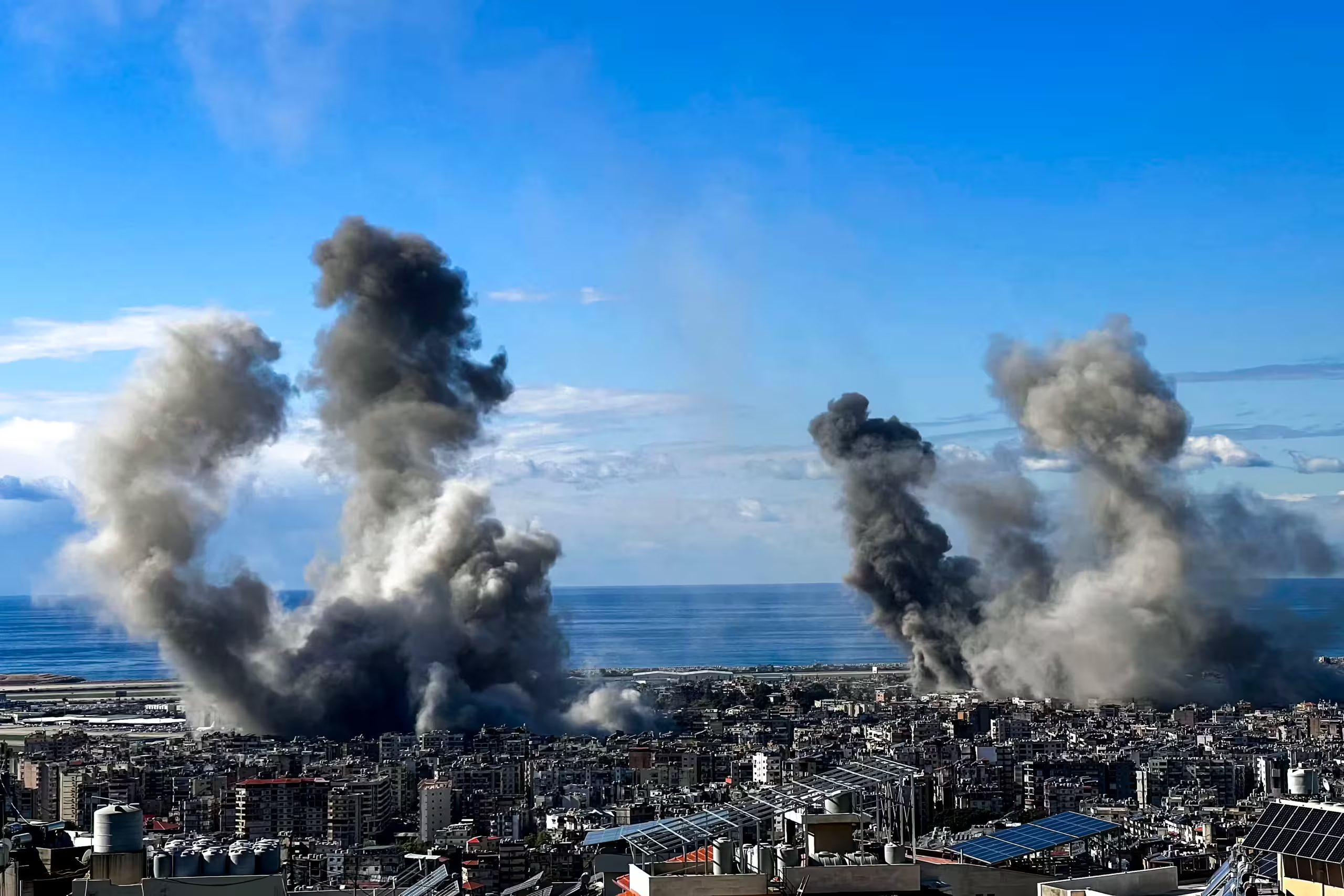Late Tuesday, Israeli airstrikes hit northern border crossings with Syria just hours before a ceasefire was to take effect to put an end to hostilities between Hezbollah and Israel. Lebanese Transport Minister Ali Hamieh confirmed the strikes. This was the first time these specific border checkpoints had ever been attacked in the whole war.
Assaults on Border Posts
The attacks were on the strategic points that connect Lebanon and Syria’s Al-Dabousyeh and Al-Arida crossings. These attacks occurred weeks after Israeli raids restricted the movement between the two nations at the eastern border crossings of Lebanon. There is no clear extent of the damage caused to the roads, but the extent of casualties and damage to structures was significant.
Syria’s Red Crescent said a volunteer died and another was injured during rescue operations at the attacked locations. Ambulances and other rescue gear were also destroyed in the raids. Syrian state TV said 18 were injured, including some critically, in the bombing of the Arida border crossing. Other casualties were reported from the Dabousyeh crossing, with victims taken to hospitals in the area.
U.S. Ceasefire Announcement
Strikes came moments after U.S. President Joe Biden said that a ceasefire would begin at 4:00 a.m. local time on Wednesday (0200 GMT). The truce would ease the conflict between Israel and Hezbollah, which has become intensified in the past weeks.
Despite the declaration of a ceasefire, the timing of the airstrike remains a question of whether the region would smoothly shift into peace. The Israeli military has kept mum on the strikes, but it has been quite vocal in stating that the operations are to curb Iran and Hezbollah’s influence in the region.
U.S. Military Action in Syria
Meanwhile, in a related development, the US Central Command announced it carried out a strike on an Iranian-aligned militia weapons storage facility in Syria late Tuesday. This comes as a response to the attack of the Iranian-alignment against US forces on Monday, showing a part of broader regional tensions in which many parties are involved.
Humanitarian Impact
Strikes have stretched an already fragile humanitarian situation in the region. The Syrian Red Crescent and other aid groups said that providing humanitarian aid was not easy in places that have been hit by the airstrikes. Damaged infrastructures and continued violence in areas are hindrances to rescue operations and delivery of aid.
The country had already been experiencing economic crises due to Lebanon and Syria. Attacking the main routes or infrastructure has been another rising challenge. The crossing attack of the border portents further isolation of the region, impeding its people and goods flow.
As the ceasefire comes into place, attention will then lie on whether it is meant to last and end in a sustained de-escalation of violence. However, the region will likely remain on tenterhooks, with humanitarian and geopolitical concerns pressing.
The past events only reflect that such affairs are still pretty delicate in Lebanon and Syria; the international community has had its eyes peeled, following any signs of movement—or further conflict—throughout the coming days.















